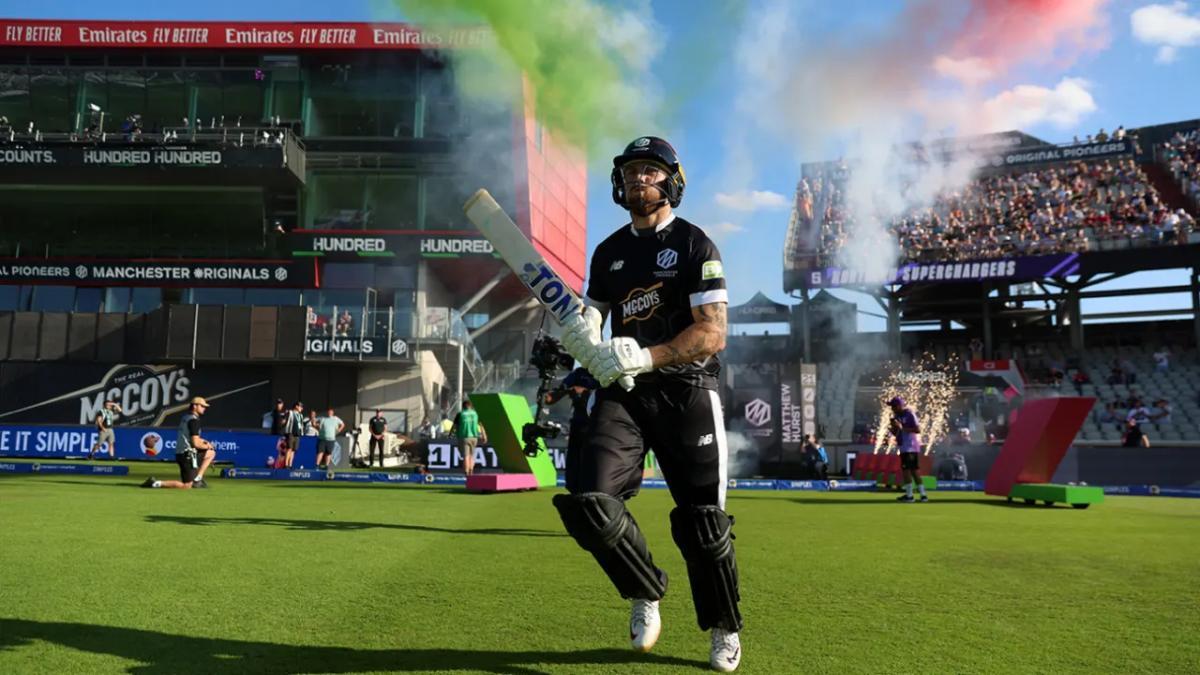Lancashire chief executive Daniel Gidney has suggested that the ECB should consider offering the BCCI a minority stake in The Hundred as a way to entice Indian men’s players to participate in the competition. With Indian players currently barred from joining overseas leagues without BCCI’s No-Objection Certificates (NOCs), Gidney believes aligning commercial interests could be the key to shifting this long-standing policy.
Gidney recently visited India to meet with the RPSG Group, which is finalizing a deal to acquire a 70% stake in Manchester Originals. The deal would see RPSG run the Originals in partnership with Lancashire. The ECB’s deadline for investment agreements is approaching, with legal documentation close to completion.
While Indian women like Smriti Mandhana and Harmanpreet Kaur have featured in The Hundred, the men’s competition has yet to see participation from active Indian players. ECB chief executive Richard Gould has acknowledged that Indian men playing in the league isn’t factored into their current plans, citing the BCCI’s firm stance. However, Gidney believes offering a stake in the tournament could shift perspectives.
“I think it’s possible,” Gidney told ESPNcricinfo. “If I were the ECB, I’d consider offering the BCCI a minority ownership stake in The Hundred. That would align interests and might be the best chance to get Indian men’s players involved. It really depends on the willingness of key individuals on both sides.”
Gidney acknowledged the BCCI’s track record of successfully protecting the IPL brand by preventing Indian players from joining foreign T20 leagues. “If I were the BCCI, I’d need a compelling reason to change a policy that’s helped the IPL grow into a massive commercial powerhouse,” he said.
Lancashire, Gidney added, could be well-positioned to attract Indian talent thanks to its historical ties with Indian cricket. “We’ve probably had more Indian overseas players than any other county. Our director of cricket Mark Chilton once captained VVS Laxman, now at the NCA — it’s all about building those relationships.”
Rather than expecting marquee names like Virat Kohli or Rishabh Pant to play in county cricket, Gidney emphasized identifying players seen by the BCCI as potential Test stars. “That’s a more realistic way to approach it than just sending an NOC request for a superstar.”
Exhibition Matches and Cross-Franchise Links
Looking ahead, Gidney predicts exhibition matches between English teams and IPL franchises could be a practical first step toward collaboration. “Imagine a game between LSG and Delhi Capitals at Old Trafford in September. That would be a huge draw for Indian fans in the UK and commercially beneficial for everyone.”
He also sees franchise links as a growing trend. The Originals have already signed Noor Ahmad and Heinrich Klaasen for The Hundred 2025, both of whom are also associated with RPSG-owned teams in other leagues. Gidney expects such cross-franchise signings to become more common.
“When a player is tied to an IPL franchise for three years, it just makes sense for them to play across the group — whether that’s in Durban, Manchester, or even for Lancashire in the Blast. It’s more efficient and simplifies contracts.”
During his trip, Gidney attended an LSG home match against CSK and believes the ECB can learn from the IPL’s flair for entertainment. “The event production is on another level — concerts, light shows, flags, replica kits. There’s room for us to innovate in the UK, especially with eight investor-owned teams.”
Ownership and Control
Lancashire’s decision to retain a 30% stake in Manchester Originals — lower than the 51% retained by other host counties — has raised some eyebrows. But Gidney says it allows them to reduce bank debt and invest in infrastructure, and that operational control remains balanced.
“Control means different things to different people. We have a joint-venture operating agreement that gives us a 50-50 say in how the team is run. And with over 25% ownership, we have minority protection through reserved matters.”
Ultimately, Gidney believes trust and alignment with RPSG are what matter most. “These agreements are there for when things go wrong — but if you have the right chemistry, you never need to pull them out. And with RPSG, we do have that chemistry.”






